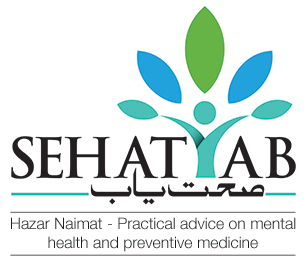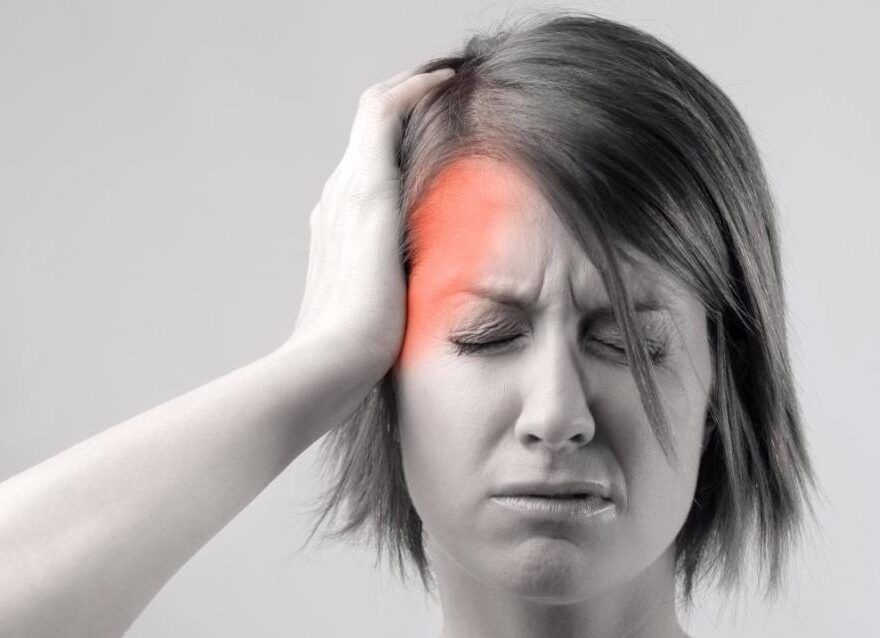In demanding situations such as an exam, interview, or speech, we rely on our brains functioning, imagine what it would be like when the brain starts messing up right at the moment. Yes, your brain can get anxious due to the immense amount of stress you’d take which can disturb your ongoing activity. However, in certain conditions, stress is not always required to be anxiety. It happens out of the blue, which we refer to as an anxiety disorder and this can be much more severe than normal anxiety. Now let’s understand how anxiety impacts our brain and what things can cause this condition to happen.
You may also read: Getting to Know Anxiety
How does water help anxiety?
A steady supply of water keeps your circulation flowing smoothly, eases joint movement, aids with digestion and weight loss, and helps your body absorb the nutrients in your food, just to name a few benefits. The study shows that water is important for maintaining your mental health. Dehydration may increase your risk of anxiety and depression, among other unhealthy mental states. Multiple studies were conducted that determined a link between dehydration and a higher risk of anxiety. In most of these studies, the effect of dehydration on anxiety levels was mild but significant. However, dehydration is not a common cause of anxiety. Water transports hormones, chemicals, and messengers to all the parts of the body. If we do not keep ourselves hydrated the body reacts in a way among which some are symptoms of anxiety.
In addition, your water consumption may also have an impact on how well you sleep. Water encourages the passage of nutrients and hormones that cause the endorphins you need to feel happy. So, drinking a glass of water is the simplest way to deal with anxiety. It is also said that;
“Being just half a liter dehydrated can increase your cortisol levels”, where cortisol is a stress hormone.
You may be interested in: Anxiety Disorders; Causes, Symptoms, Prevention and Treatment
Moreover, grabbing some ice can also reduce anxiety as it takes your focus away. It stimulates the parasympathetic nervous system which calms you down and lowers the heart rate.
What triggers anxiety?
It might be difficult to determine what causes anxiety and anxiety disorders. It’s possible that a multitude of elements, such as genetics and environmental variables, is in the role. However, some situations, feelings, or experiences may either prompt the onset of anxiety symptoms or worsen them. Triggers are the term for these components. Anxiety triggers can be different for each person, but many of them are common among people with these conditions. But for some people, anxiety attacks can be triggered for no reason at all.
- Health problems
Several health conditions like tumors and thyroid problems cause anxiety. This is due to the parathyroid and adrenal glands which cause anxiety due to adrenaline. Moreover, hormone named estrogen imbalance also triggers anxiety
- Medicines
Certain prescription and over-the-counter (OTC) medications may trigger symptoms of anxiety. This is because active components in these medications may make you feel uneasy or unwell.
Medications that tend to trigger anxiety include:
- birth control pills
- cough suppressants and decongestants(like nasal sprays)
- weight loss medications
3 Caffeine:
Many of us are dependent on our morning cup of coffee, but unfortunately, it might trigger or worsen anxiety. According to a review drinking, about five cups of coffee increases anxiety and induces panic attacks in people with the disorder.
4 Disturbance in diet:
Balanced meals are vital for a number of reasons. It provides you with the necessary energy and important nutrients. When you don’t eat, thesugar level in the blood may drop. Along with it, anxiety can be a significant symptom of malabsorption and deficiency of vitamins. Healthy snacks are an excellent method to prevent low blood sugar if you are unable to fit three meals a day into your schedule. It also saves you from feelings of nervousness and anxiety.
5. Negative thinking
It is rightly said;
“The mind moves the body, and the body follows the mind.”
Anxiety is a clear example of how much of your body is under the power of your mind. The things you tell yourself when you’re angry or frustrated can make you feel more anxious.
7. Social gatherings and events
Many people dislike being surrounded by a room full of strangers. A social anxiety disorder may be diagnosed when situations that call for group chats or interaction with strangers cause you to feel anxious.
8. Conflicts
Disputes in relationships, fights, and disagreements can all cause or exacerbate anxiety. Learning conflict resolution techniques may be necessary if conflict particularly agitates you.
9. Stress
Apart from daily stressors, long-term or chronic stress can lead to long-term anxiety and worsening symptoms, as well as other health problems.
3. Not sleeping enough
4. Financial Problems
5. Unhealthy Work Environment
The odd episode of anxiety can be caused by a demanding job or work environment. It can occur by dealing with occasional work-related stress and anxiety on a daily basis for several months.
How food can help anxiety?
Anxiety cannot be treated with food. However, research has proved that our mental health is linked to gut health therefore, some meals might assist reduce anxiety and have a relaxing effect on the body, while others can make people feel anxious after eating. Some facts about the effects of different foods are enlightened as follows;
- Consider foods that increase the soothing brain chemical serotonin, such as complex carbohydrates. Choose whole-grain bread and cereal in place of refined grains or sugary treats.
- Take protein at breakfast, so you have energy and your blood glucose levels stay steady. Disrupted sugar levels can cause irritability.
- Limit or avoid excessive use of alcohol and caffeine, which cause anxiety after eating. Both affect your sleep and can cause inflammation in addition to disturbing neurotransmission. On a side note, a cup of coffee a day goes fine to prevent cognitive decline.
- Stay hydrated as dehydration can cause mood changes.
To boost your mood, consider adding the following to your diet:
- Chocolate
- Folate and other B vitamins
- Low-glycemic foods
- Magnesium
- Omega-3 fatty acids
- In addition, consider adding foods high in zinc to your diet. Findings show that oysters, cashews, liver, beef, and egg yolks have been linked to lowered anxiety.
If you are a patient with chronic stress or anxiety, make sure to consult your doctor before making any changes in diet.
- Getting to Know Anxiety - April 26, 2024
- What Anxiety Feels Like In your Head - April 23, 2024
- Psychiatrist and Mental Illness - April 19, 2024
- Importance of Discussing Mental Health at the Workplace - December 28, 2022
- Depression vs. Sadness - December 25, 2022
- What Triggers Anxiety? - December 5, 2022
- Depression-Signs and Symptoms - November 21, 2022

